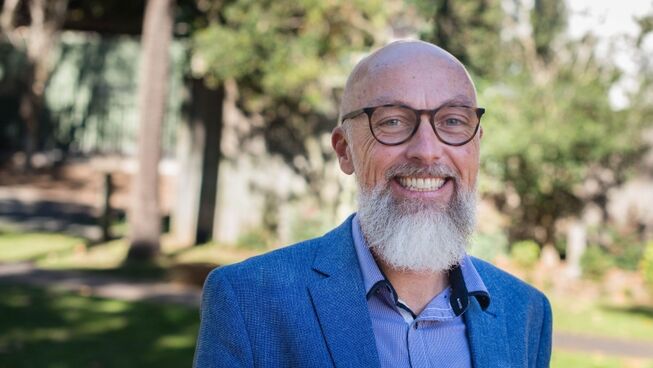After an exhausting and challenging 2020 many have wanted to start afresh in 2021 - to refresh and reboot so to speak. How can we do this? Is this even possible? And how can the desire for reboot offer a glimpse of something bigger?
Our guest: Steve McAlpine works with Third Space, an initiative of City Bible Forum, which engages the big questions of life, faith and culture. Steve is a popular blogger, author and speaker and he loves exploring the bigger questions raised by our culture.
Invest in Bigger thinking for as little as US$1 per podcast on Patreon.
Bigger Questions asked in this conversation
Love of writing & engaging culture
Steve, you love writing and reflecting on ideas and apparently your first published piece was a Grade 2 story about a family of mice being terrorised by a shark on the beaches of Perth. That’s a very creative story - did it end well for the mice?
Smaller Questions
So Steve our smaller question to you is, which of the following was ranked by critics as the worst TV series reboot?
Are reboots ever as good as the originals?
Reboot life after Covid: what do we reboot
So you can reboot computers, TV shows, but what about life? Because after the challenges and weariness of 2020 and the pandemic - an unprecedented year in many respects - it caused a lot of people to wish 2020 to finish up so we can start again in 2021 - to refresh and reboot so to speak. Can you appreciate why people would want to reboot?
Now 2021 is actually here, it seems there’s a lot of similarities to 2020: snap lockdowns, border closures and new more viral strains of Covid. How do you think people are coping?
How has this impacted the desire for reboot?
The future will be better
Inbuilt into the notion of reboot is the concept that the future will be better. Where do you think we get the idea that the future will be better?
According to psychologist Steven Pinker, by every major measure of human well-being, from personal safety to longevity to economic security to happiness, people everywhere are far better off today than they were before the start of the Enlightenment in the 17th century. So surely it’s reasonable to think that the world is getting better?
Bible: reboot vs resurrection
The Bible doesn’t use the term, reboot, it instead describes this transformation as resurrection. So how is resurrection different from rebooting?
The resurrection life for those who believe is described in the Book of Romans in the New Testament, where the author, the Apostle Paul writes, in Romans 6:4
We were therefore buried with him through baptism into death in order that, just as Christ was raised from the dead through the glory of the Father, we too may live a new life.
It seems to link the idea of resurrection of Jesus to the new life of the believer - so how does Jesus’ resurrection impact people’s lives today?
How has this ‘new life’ in Christ affected you amidst the challenges of 2020?
The Big Question
So Steve, how do we reboot life?





